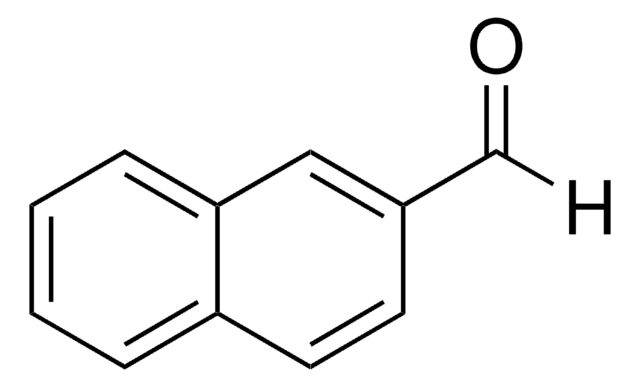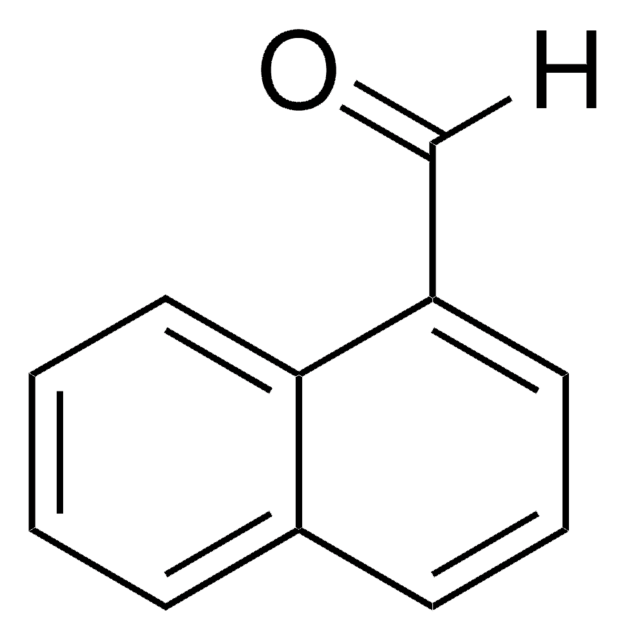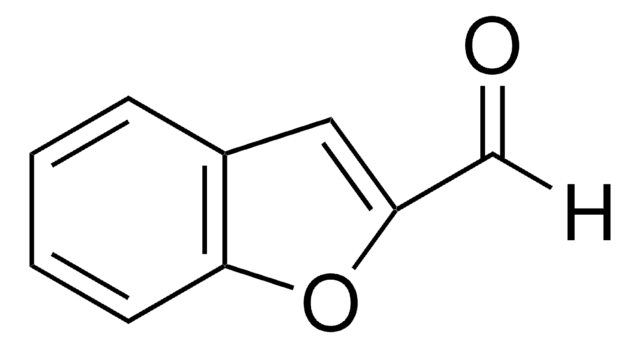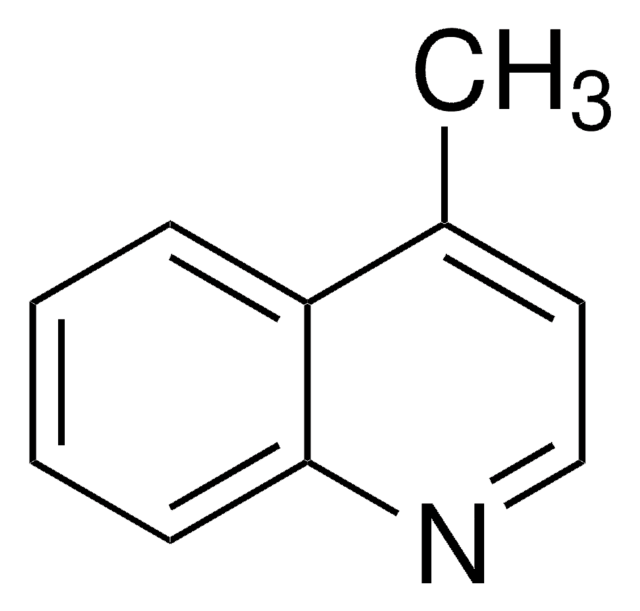176966
4-Quinolinecarboxaldehyde
97%
Synonym(s):
Cinchoninaldehyde
Sign Into View Organizational & Contract Pricing
All Photos(1)
About This Item
Empirical Formula (Hill Notation):
C10H7NO
CAS Number:
Molecular Weight:
157.17
Beilstein:
113072
EC Number:
MDL number:
UNSPSC Code:
12352100
PubChem Substance ID:
NACRES:
NA.22
Recommended Products
Quality Level
Assay
97%
form
solid
impurities
3% lepidine
mp
45-52 °C (lit.)
functional group
aldehyde
SMILES string
[H]C(=O)c1ccnc2ccccc12
InChI
1S/C10H7NO/c12-7-8-5-6-11-10-4-2-1-3-9(8)10/h1-7H
InChI key
MGCGJBXTNWUHQE-UHFFFAOYSA-N
Looking for similar products? Visit Product Comparison Guide
Application
4-Quinolinecarboxaldehyde(cinchoninaldehyde) was used in the synthesis of lepidylamines.
Signal Word
Warning
Hazard Statements
Precautionary Statements
Hazard Classifications
Skin Irrit. 2 - STOT SE 3
Target Organs
Respiratory system
Storage Class Code
11 - Combustible Solids
WGK
WGK 3
Flash Point(F)
235.4 °F - closed cup
Flash Point(C)
113 °C - closed cup
Personal Protective Equipment
dust mask type N95 (US), Eyeshields, Gloves
Choose from one of the most recent versions:
Already Own This Product?
Find documentation for the products that you have recently purchased in the Document Library.
Customers Also Viewed
Cinchoninaldehyde and Aliphatic Amines?Preparation of Some Lepidylamines.
Phillips AP.
Journal of the American Chemical Society, 69(4), 865-866 (1947)
Alaa Naama-Amar et al.
Plants (Basel, Switzerland), 9(1) (2020-01-16)
Candidatus Phytoplasma, the causative agent of yellows disease, inflicts substantial damage on several hundred plant species including perennials and annual plants. The endophytic bacterium Frateuria defendens reduces the symptoms of yellows disease in a number of agricultural crops. One possible
Chunqing Li et al.
Spectrochimica acta. Part A, Molecular and biomolecular spectroscopy, 228, 117720-117720 (2019-11-14)
It's of vital importance to detect heavy metals in environment and living cells. In this work, four near-infrared regions boron dipyrromethene (BODIPY) probes (QBPH, PBPH, QBP and PBP) are constructed based on two BODIPY precursors (QB, PB) for sensing of
Tamara Rodríguez-Cabo et al.
Analytical and bioanalytical chemistry, 407(20), 6159-6170 (2015-06-05)
Time-of-flight accurate mass spectrometry (TOF-MS), following a previous chromatographic (gas or liquid chromatography) separation step, is applied to the identification and structural elucidation of quinoline-like alkaloids in honey. Both electron ionization (EI) MS and positive electrospray (ESI+) MS spectra afforded
Our team of scientists has experience in all areas of research including Life Science, Material Science, Chemical Synthesis, Chromatography, Analytical and many others.
Contact Technical Service











